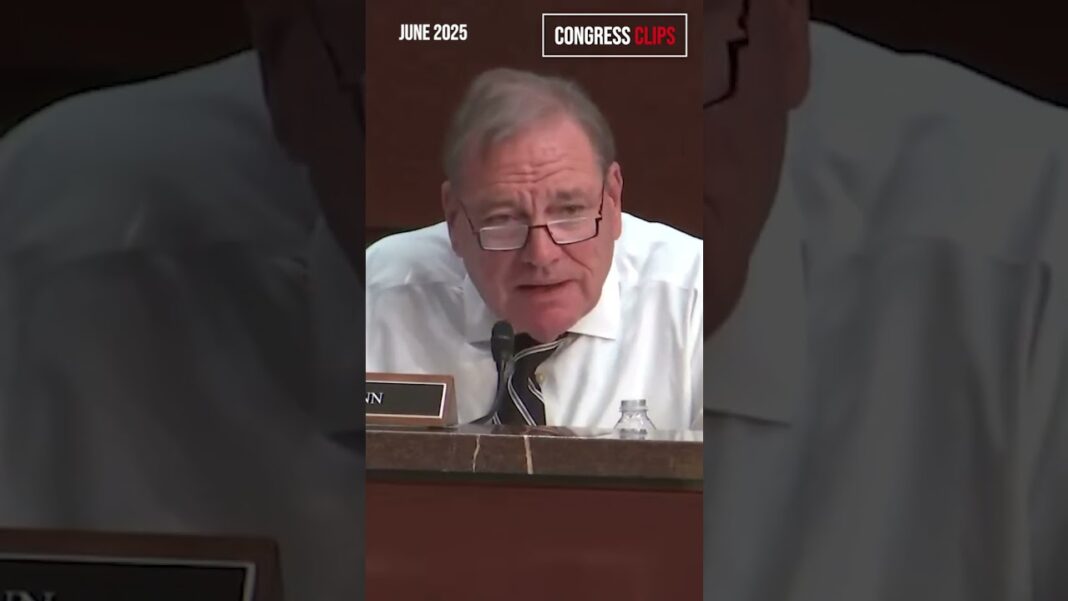Looking Into the Global Mirror of Immigration
In today’s America, conversations about national identity, border security, and shared values often spark fierce accusations. Suggesting that people should speak English, respect the national flag, or follow lawful immigration processes is enough to draw labels like “racist” or “xenophobic.” Yet when we look beyond our borders, these same expectations are not controversial at all. They are standard practice in every developed country on Earth.
From Europe to Asia, from the Middle East to Latin America, countries proudly defend their borders, uphold their national languages, and require respect for their symbols. They see these standards not as tools of oppression but as the foundation of order, unity, and mutual respect.
This report takes a clear, fact-based look at how other nations handle the very issues that have become moral battlegrounds in the United States. It focuses on language, immigration, protest laws, national symbols, and the treatment of illegal entry. The results are eye-opening and they reveal a global truth that American debate has largely ignored.
National Language and Cultural Unity
Every successful nation functions on shared communication. It is what allows citizens to understand their government, their schools, and one another. Around the world, nearly every country has one dominant language that defines daily life.
In France, that language is French. In Japan, it is Japanese. In Germany, it is German. The expectation that residents will learn and use the national language is not up for debate. It is simply common sense.
Street signs, laws, and education are all conducted in that language. Foreigners who move there know that learning it is part of adapting and showing respect.
France requires that all official communication, advertising, and education be in French. Even foreign companies must translate product labels and instructions. Germany requires citizenship applicants to pass both a German language exam and a test on national laws and customs. Japan has no alternative language options. To work, attend school, or communicate with local officials, one must speak Japanese.
Norway, Sweden, and Denmark use their own national languages across government and education. English is widely taught but it is not used for public administration. Spain, Italy, and Greece all conduct their affairs in their national languages. Israel uses Hebrew as the everyday language of communication and government. Saudi Arabia requires Arabic for all public and educational systems.
Meanwhile, in the United States, even mentioning that English should be the national language can trigger accusations of discrimination. Yet every other nation, from the most liberal democracies to the most conservative monarchies, maintains one dominant language as the unifying thread of its culture.
The United States is not cruel for expecting integration. It is unusual for pretending that integration should be optional.
Immigration and Citizenship
Immigration is a fact of modern life. People move across borders for opportunity, safety, and new beginnings. But every stable nation distinguishes between legal immigration and illegal entry. The difference is not one of race or religion. It is one of respect for the laws of the country being entered.
France requires proof of language skills, a clean criminal record, and knowledge of French values before granting citizenship. Germany demands years of legal residence, self-sufficiency, and completion of an integration course. Japan rarely grants citizenship to anyone who cannot demonstrate full adaptation to Japanese society. It is not uncommon for the process to take a decade or more. Israel offers automatic citizenship only to those of Jewish heritage under the Law of Return. All others must go through the same process as any foreigner. The United Kingdom requires language proficiency and the Life in the UK test covering history, law, and cultural expectations. Australia requires applicants to pass a values test and maintain a clean record.
In every case, citizenship is a privilege to be earned, not a right to be demanded.
By comparison, in the United States, even suggesting that immigrants should learn English, pass a civics test, or respect the flag is enough to start a shouting match. Yet those expectations are the global norm. The only difference is that other nations see them as acts of unity rather than division.
Illegal Immigration and Border Enforcement
Every nation controls its borders. To do otherwise is to surrender its sovereignty. Around the world, entering or staying in a country illegally is treated as a serious offense.
In France, those caught without valid papers can be fined, detained, and deported. Raids are conducted in major cities, and detention can last for months. Illegal residents are not entitled to welfare, housing, or jobs.
In Germany, unauthorized entry is a criminal offense. Employers face heavy fines for hiring those without proper documentation. Illegal immigrants cannot access benefits except for emergency medical care.
In Japan, immigration authorities routinely detain and deport foreigners who overstay visas. Deportees are barred from reentry for years. Hospitals can refuse treatment if a patient cannot pay, and there are no welfare programs for undocumented residents.
In the United Kingdom, people without legal status cannot legally work, rent housing, or claim public benefits. Employers and landlords are required to verify immigration documents. Deportation flights are routine.
Australia uses mandatory detention for anyone entering illegally. Many are held in offshore processing centers until they can be returned home. There is no welfare or housing for undocumented migrants, and overstaying a visa can result in a ten-year reentry ban.
South Korea requires foreigners to carry identification at all times. Those without valid status can be arrested, jailed, and deported. Employers who hire them face steep fines.
Israel detains and deports those who enter illegally except for verified refugees. Even then, housing is provided in designated centers, not through welfare programs.
Spain operates detention centers for illegal entrants. Those with no legal right to remain are deported, though humanitarian permits are sometimes given for families.
Mexico enforces its immigration laws aggressively. Illegal entry is a crime. Foreigners without proper documents are detained and deported, and they cannot receive welfare, housing, or free health care.
Canada and New Zealand also deport illegal residents and restrict public services to citizens and legal immigrants.
If an American tried to enter any of these countries illegally and demanded free housing, medical care, and welfare, they would be arrested, fined, and sent home. It would not be controversial. It would simply be called the law.
Protests and Public Demonstrations
Every democratic nation recognizes the right to protest, but none allow chaos to rule the streets. Nearly all require permits, regulate locations, and restrict violent or disruptive behavior.
In France, public protests must be approved in advance. Demonstrations near certain government buildings are off limits, and police have broad authority to break up gatherings that disrupt traffic or threaten safety.
Germany allows protests but requires notification to police. Officers can end any demonstration that incites hatred or threatens public order.
Japan rarely allows spontaneous demonstrations. Routes and times must be approved, and the police closely monitor crowds.
South Korea bans overnight protests and requires registration. Loudspeakers and road blockages are prohibited.
The United Kingdom allows peaceful protests but regulates location, duration, and noise levels. Police can impose limits or arrests for obstruction or violence.
Israel and Spain require permits for protests and restrict gatherings near government institutions or security zones.
Saudi Arabia and China outlaw unauthorized demonstrations entirely, viewing them as threats to national security.
Across the developed world, protesting is a right, but only within the bounds of law and respect for public safety.
In the United States, however, even minor efforts to restore order are branded as crackdowns on free speech. When other nations enforce the same limits, they are seen as civilized. When America does it, it is portrayed as fascism.
Respect for National Symbols
Every country treats its flag as sacred. Desecrating it is often a crime.
In France, insulting or defacing the flag can result in fines. In Germany, the same act is punishable under laws protecting national symbols. Japan prohibits public defacement of national or imperial emblems. South Korea imposes prison terms for flag desecration. Israel, Poland, Portugal, and many others have similar protections.
Even in democracies like Australia and Canada, flag desecration is frowned upon socially and can trigger legal action if tied to vandalism or incitement.
Only in the United States is burning the flag not only legal but celebrated by some as an act of free speech. The irony is that this freedom exists because of the very nation the act insults.
Displaying Foreign Flags During Protests
In most nations, waving a foreign flag at a domestic protest is considered an insult.
In France and Germany, police may remove foreign flags if they are seen as incitement or threats to public order. In Japan and South Korea, doing so can lead to arrest, especially if the flag represents an enemy state. In Israel, waving the flag of a hostile or separatist group can result in detention. Turkey and Saudi Arabia punish displays that challenge national unity. Even in the United Kingdom, police can confiscate flags used to provoke or divide.
Only in the United States can protesters replace the national flag with another without consequence. What would be condemned elsewhere is tolerated and even defended as political expression here.
The Double Standard
When you put all this side by side, a clear pattern emerges. The actions that make headlines in America, such as asking for a common language, enforcing immigration law, setting boundaries for protests, or protecting national symbols, are normal, accepted, and lawful everywhere else.
In France, enforcing borders is not called racism. In Japan, demanding that immigrants learn the national language is not bigotry. In Germany, punishing those who desecrate the flag is not fascism. In Saudi Arabia, waving a foreign flag at a protest is not tolerated at all.
But in the United States, these same acts are described as hateful or authoritarian. That is not because the rules themselves are wrong, but because a portion of society has been conditioned to see national identity as something to be ashamed of.
The real difference is not in policy but in perception. Other nations expect their citizens and residents to respect their culture. America, uniquely, apologizes for having one.
The world is not divided between nations that have standards and those that do not. It is divided between nations that defend their values and those that are afraid to.
Every developed country on Earth maintains control over its borders, requires its residents to adapt to its language, and demands respect for its national symbols. None of this is considered controversial. It is seen as common sense, the basic ingredients of a functioning society.
Only in the United States have these same expectations been redefined as signs of hatred. The question, then, is not whether these values are good or bad, but why America alone is told to abandon them.
If the rest of the world can enforce its laws, protect its borders, and take pride in its identity without shame, then surely the United States has that same right. A country that refuses to defend its culture will eventually lose it. When that happens, no one will thank us for being the only nation that forgot how to stand for itself.







